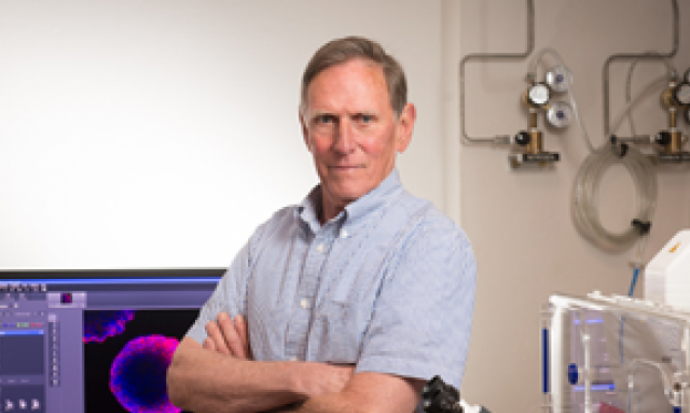Professor Robert (Bob) Millar is the Director of the Centre for Neuroendocrinology at the University of Pretoria (UP). He is also a senior research fellow at the Universities of Cape Town (UCT) and Edinburgh, and Emeritus Professor at the University of St Andrews in Scotland. He was born in South Africa and grew up in Zimbabwe.
From 1998 to 2011, he was Director of the UK Medical Research Council’s Human Reproductive Sciences Unit at the University of Edinburgh. Upon his return to South Africa, he took up the position of Director of the Mammal Research Institute at UP, with a secondary position as Director of the UCT/MRC Receptor Biology Group.
Prof Millar’s contributions to science are globally recognised. He received an A-rating from the National Research Foundation in 1990 and four re-ratings at this level in subsequent years. Among other awards, he has received the Wellcome gold medal, the Oppenheimer gold medal, the John F Herschel gold medal – the highest award of the Royal Society of South Africa – and the South African Medical Research Council’s platinum medal. He received lifetime achievement awards from the National Science and Technology Forum (NSTF)/Billiton and the Society for Endocrinology, Metabolism and Diabetes of South Africa, and is a Bargmann-Scharrer laureate and a Geoffrey Harris laureate.
Prof Millar has published more than 450 peer-reviewed articles which have been sited more than 30 000 times, and has an H-index of over 90.
He was the first to determine the biosynthesis and structural variants of gonadotropin-releasing hormone and the cloning of its receptor, which regulates reproduction. These studies underpinned the development of analogues, which now constitute a billion-dollar market for the treatment of infertility, prostate cancer, and women’s diseases such as endometriosis, uterine fibroids and polycystic ovarian syndrome.
Prof Millar says his life is one of asking questions, discovery and helping others through science and knowledge.
What is neuroendocrinology?
It is the field where we try to understand the way in which the brain talks to the body, and the body talks to the brain. Neuroendocrinology is involved in every aspect of homeostasis through a part of the brain called the hypothalamus. Very simple small peptides made here – mostly three to 20 amino acids in length – regulate every aspect of the body, including water and electrolyte balance; thyroid, gonadal and adrenal function; stress; lactation; appetite; growth; and temperature regulation.
The beauty is that we can easily make these molecules and analogues for therapeutic intervention. I have found it so exciting to design these molecules and show their efficacy. It is a fascinating area. A particular interest of mine in this field is the reproductive aspect, but I have worked in most of the other areas as well.
What is most rewarding about your career?
As an academic, I have had the incredible privilege of being paid to ask questions and explore answers to them. I can’t think of anything more fun and fulfilling than that. I have done this my entire life and cannot imagine a better vocation.

 Story
Story
 Story
Story
 Talking Point
Talking Point
 Infographic
Infographic
Get Social With Us
Download the UP Mobile App